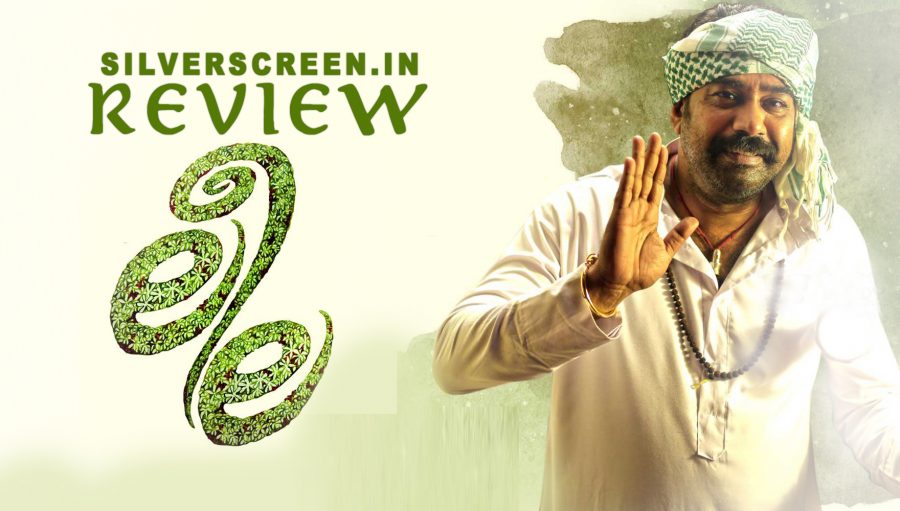At the heart of Leela is an anarchic man and his wild fantasy. To have sex with a luscious young girl, leaning against the trunk of a tusker in a deep dark forest.
He finds a droopy-eyed girl, whose grim silence can draw everyone around her into its sinking depths. Aiding him is a shrewd, but good-hearted pimp. And a loyal friend, who watches with horror and guilt, as the fatal game unfolds. There’s also a father, who remorselessly violates his daughter.
More than the director, Ranjith Balakrishnan, Leela belongs to Unni R, the writer who sketched such characters.
*****
The film is based on Unni R’s famous short story “Leela”. It’s a story with strong mystical and metaphorical undertones, determined to mirror Kerala’s sexually repressed society. A story that ends on a terrifying note, a finale that can equally easily be interpreted as feminist or misogynist.
But, the short story’s haunting and harrowing subtext doesn’t translate too well on screen.
The film’s narrative is laden with monologues and long-winded dream-like sequences that jut out of like deformed organs. What Unni R wrote in his script is blindly enacted on screen, with little deference to the needs of cinema. The old-fashioned technique of excessive dependence on dialogues to make a point is repeatedly employed.
And so, in spite of an attempts to look contemporary, Leela comes across as anything but.
*****
Set in the archaic Kottayam town, Leela narrates the tale of Kuttiyappan (Biju Menon), a middle-aged loafer living off the wealth of famous and revered ancestors. He resembles characters from Unni’s previous works. Kuttiyappan shares Charlie‘s pacifism and love for freedom. He is also enigmatic, like Charlie and Munnariyippu‘s CK Raghavan.
The film initially focuses on establishing his character. It introduces the audience to the people in his life – Dasappappi, a pimp (an excellent Indrans); Usha, a prostitute (Kavitha Nair); and Pillechan (Vijaya Raghavan), a simpleton who timidly follows Kuttiyappan into his (mis)adventures.
Portraits of Marilyn Monroe, Bruce Lee, and Kerala’s pioneer communist leader, EMS, adorn Kuttiyappan’s bedroom wall. The message is clear: lust, machismo, and communism. In a later scene, he organises a parade of retired sex workers in the town, and declares them (and himself) pure-blooded socialists.
Kuttiyappan is not a regular small-town man. He has read Marquez (and pronounces the name correctly), and croons Rafi numbers. He twists rules and violates social norms in his own witty style. He has (apparent) hallucinations where he meets his great grandmother. She arrives as an angel, clad in the traditional Christian chatta-mundu attire, and advises him on life and people.
But, it’s not exactly seamless; the film randomly jumps from one scene to another, glorifying Kuttiyappan’s hip demeanour, quirky exploits, and bizarre fantasies.
*****
The title might indicate otherwise, but Leela seldom sides with the woman. The first woman who appears in the film is a young prostitute, CK Bindu (Priyanka). She helplessly plays along as Kuttiyappan asks her to entertain him with a bizarre task. Like every girl or woman who appears on screen, she is at his service, subject to his mercy. At one point, a retired sex worker curtly remarks that Kuttiyappan’s act of honouring them is just another way of satisfying his inflated masculinity. For that instant, Kuttiyappan appears fazed. But, a scene later, he goes back to chasing his sexual fantasies.
*****
Recommended
Biju Menon looks the part, and gets the colloquial flavour right. But the role has such little detail, and is so unidimensional, that even the flawless Menon of Vellimoonga‘s Mamachan and Ordinary‘s Suku, cannot recreate his distinctive style.
Parvathy Nambiar, who plays the titular Leela, fits the role perfectly. She doesn’t say a word. And yet, steals the final moments with powerful expressions and body language.
Bijibal’s background score is easily the most evocative element in the movie. It partners with Prashanth Ravindran’s camerawork to create some of the best moments in the film.
*****
The Leela review is a Silverscreen original article. It was not paid for or commissioned by anyone associated with the movie. Silverscreen.in and its writers do not have any commercial relationship with movies that are reviewed on the site.



